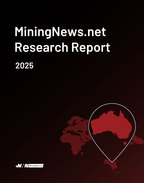The Robert Friedland-backed company said it was still completing some aspects of its project execution plan with global engineering group Flour, while its partnering process for up to 50% equity has been affected by COVID-19 travel restrictions and the wider market volatility.
The DFS will now be delivered in the September quarter, causing Clean TeQ to miss its mid-2020 FID target.
While reviewing the production forecasts, resources, reserves and operating and capital cost estimates was substantially complete, it will take some time to finalise all studies and incorporate the latest design and engineering work, and revise the project schedule.
It follows delays to engineering and design work last year when Clean TeQ split with former engineering partner Metallurgical Corporation of China.
Ever optimistic, CEO Sam Riggall said "good interest" had been expressed by several parties across the electric vehicle supply chain in participating "one of the few development-ready nickel-cobalt battery material projects in the world", and he is convinced the partnering process will be successful.
"Even between the most conservative and optimistic EV growth projections, the mining sector needs to build between two and four Sunrise projects every year for the next decade simply to meet EV battery demand for nickel and cobalt," Riggall said.
"Global automotive supply chains are dangerously underestimating development timeframes and capital requirements, which is why some carmakers are now contracting directly with mining companies to secure a supply of strategic metals.
"At some point in this game of musical chairs, the music will stop and not everyone will have a seat."
Riggall also believes Clean TeQ will have the green credentials demanded, with a low-carbon intensity process and no toxic tailings being dumped into the ocean.
A review of Sunrise concluded its hydrometallurgical process emits 10-42% less greenhouse gases than its rivals, and up to 475% less when compared to those using lower grade nickel feedstocks.
Integrating renewable energy generation into the project could further reduce carbon intensity by around 30%.
Sunrise is being designed to integrate into any carmaker's EV supply chain, with a direct-to-sulphate production process to by-pass offshore refining, a battery recycling circuit, and refining of scandium to improve materials performance for aerospace and automotive applications.
With the FID date uncertain, Clean TeQ is looking to preserve its A$42 million in cash, with a pay freeze for 2020-21. Directors will take a 40% reduction in fees, and executives will take a 20% cut to fixed pay.
Some job losses will likely follow when the revised DFS is delivered.
Sunrise was envisaged to produce 19,620 tonnes nickel and 4420t cobalt over the first 10 years based on the 2018 DFS.
Shares in Clean TeQ have been sliding from 37c since last July, and were 17.5c yesterday, valuing the company at $130 million. The company was worth $1 billion in late 2017.



